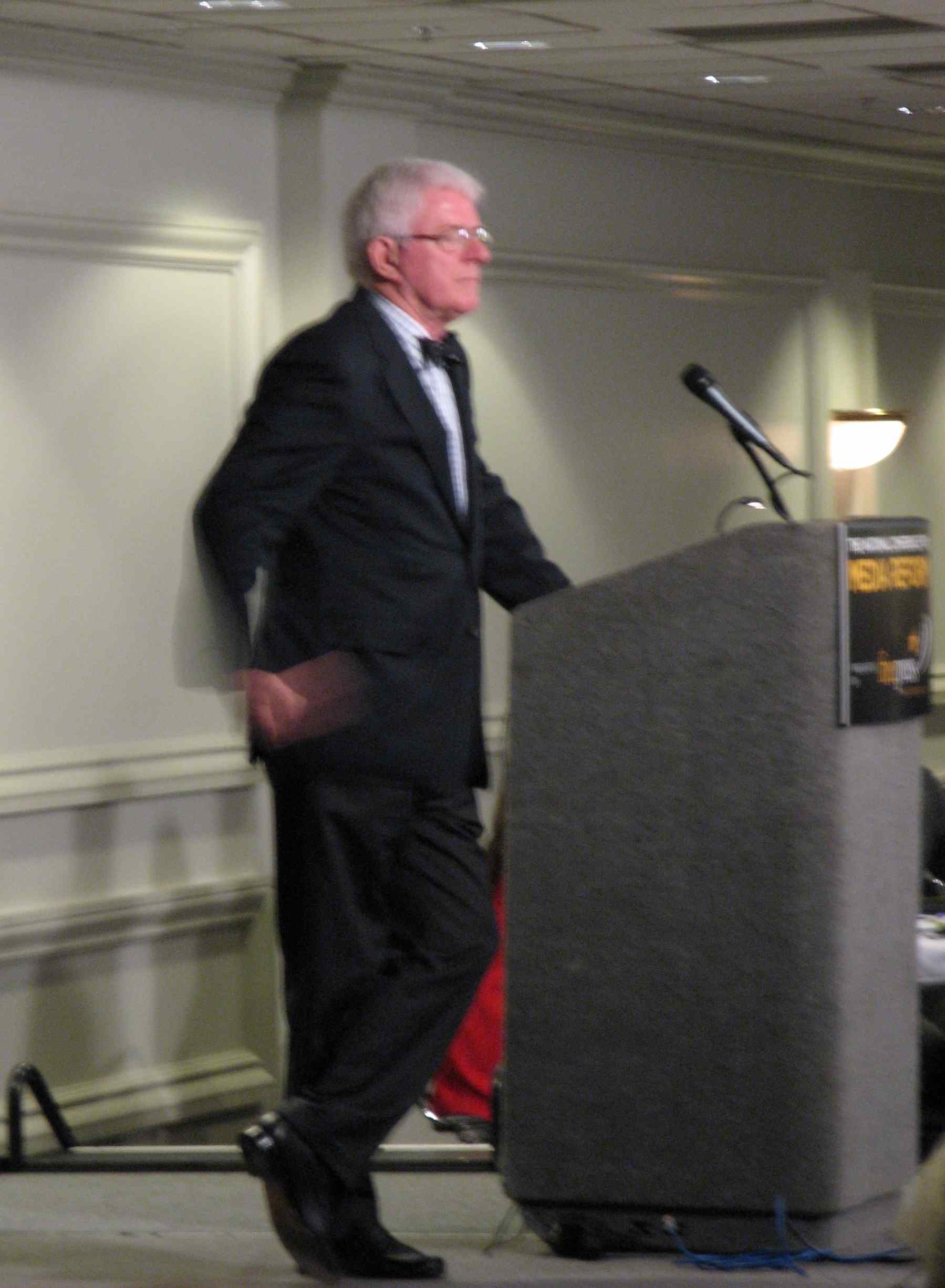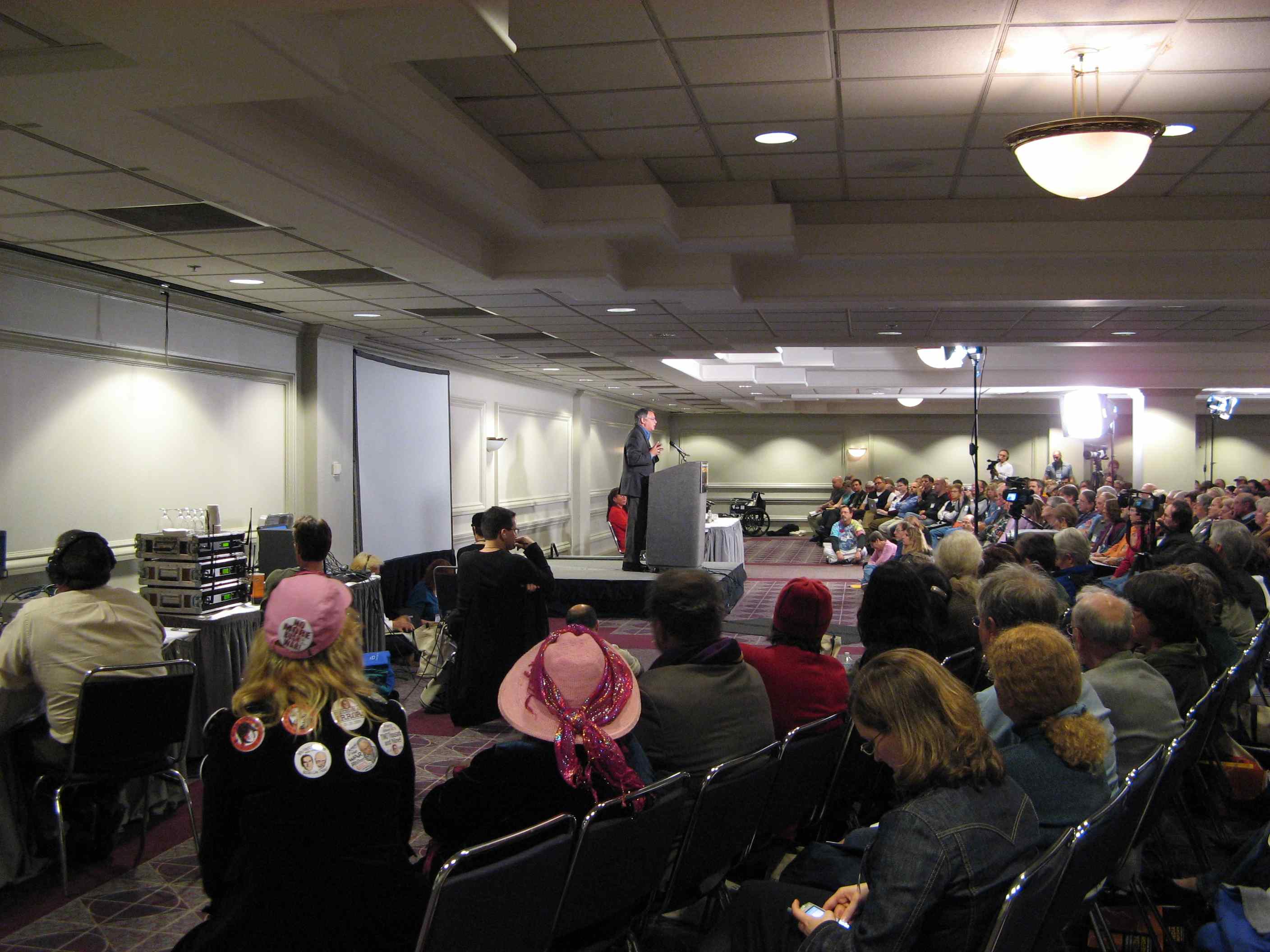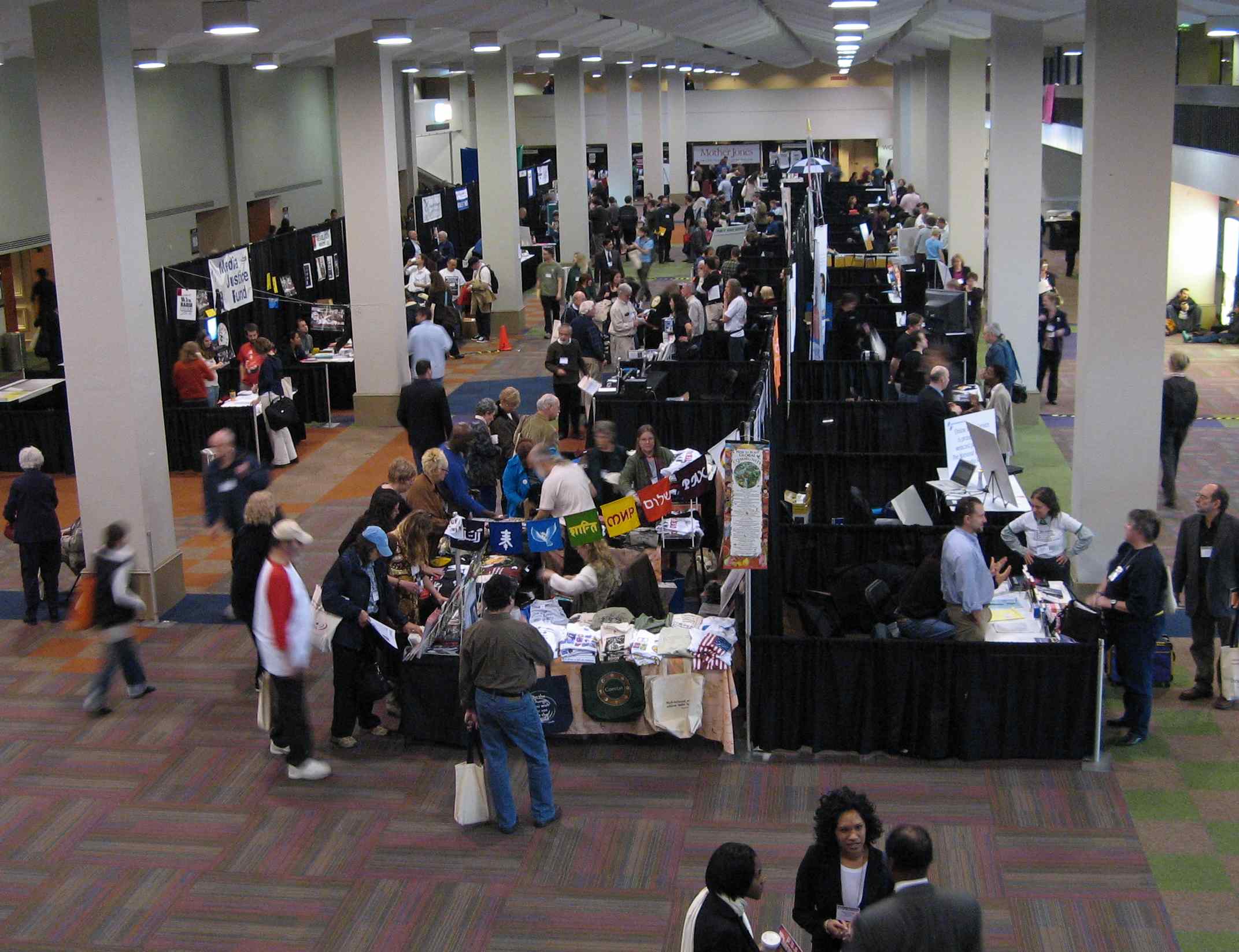I am currently attending the National Conference for Media Reform at the downtown convention center in Memphis. It’s pretty amazing to see and feel all this energy everywhere I look. There will be in excess of 100 presentations. This is still the first day of the 2 1/2 day conference, yet I have already learned more than I can meaningfully absorb. For more on all the things going on out here, go to freepress.net.
Simply understanding concepts is not what this conference is really about. It’s about putting this understanding into action. The organizers chose the following quote of Dr. Martin Luther King for the first page of the conference guide: “And nettlesome task is to discover how to organize our strength into compelling power.”
It is media reform, in addition to being an important issue, an issue that inspires people to organize their strength into action? Apparently so. This is the third time freepress.net has sponsored a national media conference. The first conference drew 1,800 people to Madison, Wisconsin. Last year, 2,200 people came to St. Louis. This conference is being attended by the more than 3,000 people. According to one of the speakers, the current issue of The Nation features an article advocating the reform of the corrupt mainstream media. You won’t find much about this conference or these topics in the mainstream media, however (correct me if I’m wrong). That is not unexpected, given that the mainstream media is a constant target of criticism here.
It’s much-deserved criticism. Why would that be? Perhaps it’s because of the mainstream media’s constant muzzling of relevant alternative perspectives (US policy in Iraq being only one of these). Or maybe it’s the media’s perpetuation of stereotypes, or the narrowed scope of creativity in entertainment shows, or perhaps it’s the lack of meaningful local coverage (not a surprise, given that the media is increasingly owned by fewer and fewer larger national corporations that truly do not care about issues affecting local communities).
The conference opened with a inspired talk by Bill Moyers. I am certain that freepress.net will be putting a video of his speech on its site within the next couple of days. I would highly recommend it to anyone feeling uneasy about the information they are being provided by mainstream media and the consequences of voting and living in such ignorance. I will be writing more about Moyers’ speech once the transcript of his speech is available. Always engaging, Moyers spins a gem of a statement every minute, and I certainly don’t want to botch his genius through paraphrases filtered through my poor memory and often-illegible notes (my writing is often hard to read–and have you ever scribbled fast in the dark?).
Early this afternoon, I attended a panel discussion moderated by Phil Donahue, who, in 2003, was fired by MSNBC in the run-up to the Iraq invasion; his liberal viewpoint was too much for his employer.

Before his firing, Donahue had received a directive from MSNBC that for every two liberal guests, he he was required to invite three conservative guests to the show. This informal “fairness doctrine” does not apply to conservative shows, however. Donahue described a current show called “Beltway Boys” (FOX), which includes only four conservative pundits “all talking to each other.” The mainstream media does not present progressive voices, despite all the protests by conservatives. According to Donahue, you will not find any conservative think tanks surveying the talking heads presented on news shows, because those guests are overwhelmingly conservative. “We have silenced half of the country that preaches free speech,” Donahue bemoaned. “This is terrible.”
Donahue also warned that we must not waste the blood of our soldiers. To do this, we need to keep the promise of the framers alive and to invite free and vigorous speech. Good ideas will truly beat bad ideas. “Don’t shush Rush and don’t shush us.”
To keep the media presentations evenhanded, however, we must beware of the way the mainstream media frames issues. We must not speak of any “surge” in Iraq when we’re really speaking of the gushing of ever more blood of our own soldiers and of Iraqi civilians.
Donahue’s panel included Juan González, 28-year veteran journalist, and writer for the New York Daily News, as well as a co-host for DemocracyNow.org.

Gonzales pointed out that the postal system itself was invented to carry newspapers for the elite, for the most part. Newspapers were owned by the well-to-do until special newspapers were created by worker organizations in the 1930s to address the workers’ issues. At that point, workers had their own press and some of those newspapers became big. Still, the viewpoints of African-Americans, Native Americans, Latinos and the Chinese were not represented in any meaningful way.
The main point of González was that the press has always been a part of the elite power structure. The corporate press that we see today is nothing new. We should not lose perspective when we worry how subjugated people will get their stories told. This has always been a problem and we will need to keep working hard at it.
What about the way the mainstream press has failed to address important issues regarding the Iraqi war? This, too, is nothing new. The press failed miserably to cover serious issues regarding the Mexican-American war, the Spanish-American war, World War I, World War II and, of course, Vietnam. It is rare, according to González, that the media will oppose the government regarding any war policy unless there is a conflict in the prevailing power structure of the government. War time, then, is the real test of the press. The only type of wartime debate presented by most mainstream media concerns tactical issues (how many weapons to use or how long the conflict will go on). What is extremely rare are serious investigations regarding the motives for war, the money issues that drive conflicts.
When the press steps forward to question the government recording a war, something extraordinary has happened. it is in this context that the cancellation of Phil Donahue’s MSNBC show was entirely expected.
González asked what we would have known about Iraq had Al Jazeera never existed. As much as news presented by Al Jazeera offers its own viewpoint, attacks on Al Jazeera by Western media should have been entirely expected, given that Al Jazeera was a major international source of news that challenged the viewpoint relentlessly promoted by Western media. That Western viewpoint, of course, was that everything was going well in Iraq.
One of the members of the audience is a blogger who runs http://nprcheck.blogspot.com/, a blog dedicated to keeping NPR from drifting ever more toward pro-government pro-corporate positions. He warned that we need to take back public radio, citing the right wing tilt to the guest lists at NPR during the run-up to the Iraq war. It got so bad, he warned that many people started referring to NPR as “National Pentagon Radio.” He warned that the airwaves are owned by the public, and at NPR is neglecting large segments of the public by its continuing right-wing tilt. Nonetheless, on his website, he encourages us to keep supporting NPR while advocating improvements.
Linda Foley of the newspaper Guild commented that this is a gut wrenching time for numerous working people. Many have lost their jobs and benefits. She complained that mainstream media woefully fails to cover these issues. Danny Schechter (http://www.newsdissector.com/blog/) added that these layoffs often result in massive debt crunch for these workers, another neglected issue.
Phil Donahue commented that fraternization is one of the worst offenses in the Army. This is because you can’t shoot a guy with whom you been sharing photos of your wife and children. Therefore, soldiers should not fraternize with the enemy. The media breaks this rule and we are paying for it. “You can’t dine with Henry, than write about Henry. There’s a reason for this.” By Hugh argued that the media needs to learn how to say “no” to social opportunities with the very people about which they are writing.
With so much going on at the convention, it is frustrating that I am only one person and it is impossible for me to cover more than a small slice of it. Nonetheless, I did attend several other sessions that I will be writing about in later posts.
This afternoon, I conducted short video interviews of numerous Exhibitors at the conference.

In a few days, after I am able to get to my desktop computer, I will download these videos and put them on this site. It was fascinating to talk to so many dedicated and intelligent people, all working toward improving the media and offering creative alternatives to the status quo.


Some self-proclaimed media watchdogs are showing a tendency to bark at the wrong tree these days. Should they be considered naive or are such acts done deliberately to deflect attention from the bigger picture?
Are media observers spending their efforts and energies in pursuing the truth on questions that are pertinent?
Are the Americans any closer in getting the exact picture on the ground despite spending $8 billion a month in Iraq? Having paid a heavy price in precious American lives, when will the media watchdogs take on those who deceived the American public? Those who call for restricting plurality of opinion deny the option of diversity and deprive the US audience to ascertain the accuracy of facts for themselves. They should instead turn their guns on the cakewalk crowd who promised a casual march to victory in Iraq.
Is anybody calling for a campaign to question the likes of Ken Adelmen who misled the American media by claiming “measured by any cost-benefit analysis, such an operation would constitute the greatest victory in America's war on terrorism.” Is the US any closer in getting the exact picture of the ground situation despite spending $ 2 billion a week? Former press attaché Robert J. Callahan recently told the American Journalism Review that out of 1000 personnel at US mission in Baghdad, hardly a dozen are fluent in Arabic: "Add to this the inability of most of us to read Arabic newspapers and understand television news programs.”
It is the absence of and NOT presence of alternate opinion that is injurious to American interest. More so, when owing to movement restrictions on US media in Iraq, security risks and language barriers for American expatriates and diplomats there is limited interaction to gather facts.
Those advocating for accuracy in media should clarify if they have put their full weight behind supporting and practically ensuring that the Americans get a pluralistic picture of ground realities. Until that happens, the American people will only mourn the regrettable loss of direction and confused priorities on the part of the US media watchdogs.